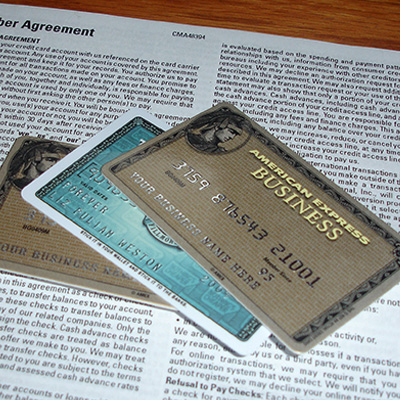Fico Scores Vs. Fako Scores – The real story
This is a very common subject we cover.
Client: “I pulled my credit report online and the score my loan officer pulled up was completely different?”
Yes, there are multiple credit scoring formulas. The industry standard remains FICO but consumers are no longer given access to all 3 FICO scores (experian, equifax & transunion).
Remember, if you are in the market for a mortgage or any other loan product you can always review the details of your report by going to www.annualcreditreport.com but remember, only your lender can access all 3 fico scores. Start the process early so if you find that your FICO scores are too low you can quickly work on getting things up to par.
The best ways to Review and Elevate Your Credit history
Why do some individuals obtain deals for pre-approved charge card as well as others don’t? What do automobile dealers find out about your monetary health and wellness that you don’t know? The response is your credit score.
Your credit report is a number produced by a mathematical formula to determine how most likely you are to pay your expenses. Based upon the info in your credit report guides from the three credit report agencies, Equifax, Experian, as well as TransUnion, your credit history has actually been a consider your capability to apply for lending and also good rates of interest for greater than twenty years. Lenders compare your credit rating guide with millions of others to determine your credit score.
While there are a selection of credit history approaches readily available to loan providers, the most extensively utilized is the FICO credit score. Based on a racking up system developed by Fair, Isaac & Co., FICO credit scores vary from about 300 to 800 points and also are offered to lending institutions by the 3 credit report bureaus. You additionally have access to your FICO scores but will be charged a fee by each credit report agency supplying your record.
Based on on Fair Isaac, the credit scores of the American public are broken down as follows:
-> ¢ 499 as well as listed below 1 percent
-> ¢ 500-549 5 percent
-> ¢ 550-599 7 percent
-> ¢ 600-649 11 percent
-> ¢ 650-699 16 percent
-> ¢ 700-749 20 percent
-> ¢ 749-799 29 percent
-> ¢ 800 and above 11 percent
A score of 720 or higher will probably get you the very best interest rates on a house mortgage. Your credit card company takes a look at your credit score to make a decision whether to raise your credit line or cost you a higher rate of interest. The higher your credit report, the better you look to lenders and also the lesser your rates of interest.
A number of factors affect your credit history including your repayment past, the length of your credit rating past, any sort of outstanding financial obligation, how long as well as exactly how typically you have actually had derogatory credit history information, such as charge-offs, personal bankruptcies, or collections, as well as the amount of credit report you are utilizing as compared to the amount of credit report offered to you.
Exactly how do you increase your credit rating? Well, the first factor to do is to purchase a copy of your credit rating report with the credit score consisted of from each of the three credit history agencies.
Next off, remember to pay your bills on time. It may seem like a little factor at the time you’re creating that month-to-month check, but an accumulation of timely payments states a whole lot to a possible lending institution searching for a trusted customer. Motivate repayments in the last few months could actually make a large distinction in your credit history.
While collections, personal bankruptcies, and also late payments have the biggest adverse result on your credit rating, your debt is an aspect. For this factor, settling your credit rating card financial obligation can really reduce your credit rating, as it increases the ratio of your financial obligation to your available credit history.
Extreme questions over a brief time period likewise damage your score. When lending institutions, banks, or charge card business examine your credit history report, the questions are videotaped. Several of these “difficult inquiries” in the same period could indicate to various other lending institutions that you are opening several accounts because of financial trouble.
If you discover that you have accounts on your guide that you really did not open, or your community documents such as tax liens or judgments that are not your own, you could be a victim of identity scams. Since of this criminal activity, it is up to you to deal with the damage that can take place to your credit rating. Understanding is your first step, yet when the choices end up on your guide, you have no alternative but to cleanse it up.
Generally, give yourself time to construct a great credit report as well as more time to fix major issues. The length of your credit rating past is an additional establishing consider a good credit score. Lenders would like to know that you are able to keep prompt repayments as well as good standing for a time frame. So inspect your records yearly, do your due persistance, and your rating could boost.
Based on the info in your credit records from the three credit bureaus, Equifax, Experian, and TransUnion, your credit score has actually been an aspect in your capacity to qualify for financings as well as great passion prices for more than twenty years. Your credit card firm looks at your credit report score to determine whether or not to increase your credit history limitation or fee you a greater passion rate. Well, the initial point to do is to order a duplicate of your credit history report with the credit score consisted of from each of the 3 credit report agencies. For this reason, settling your credit report card financial obligation can really decrease your credit rating, as it increases the ratio of your debt to your available credit report. When lending institutions, banking, or credit rating card companies inspect your credit record, the inquiries are tape-recorded.





